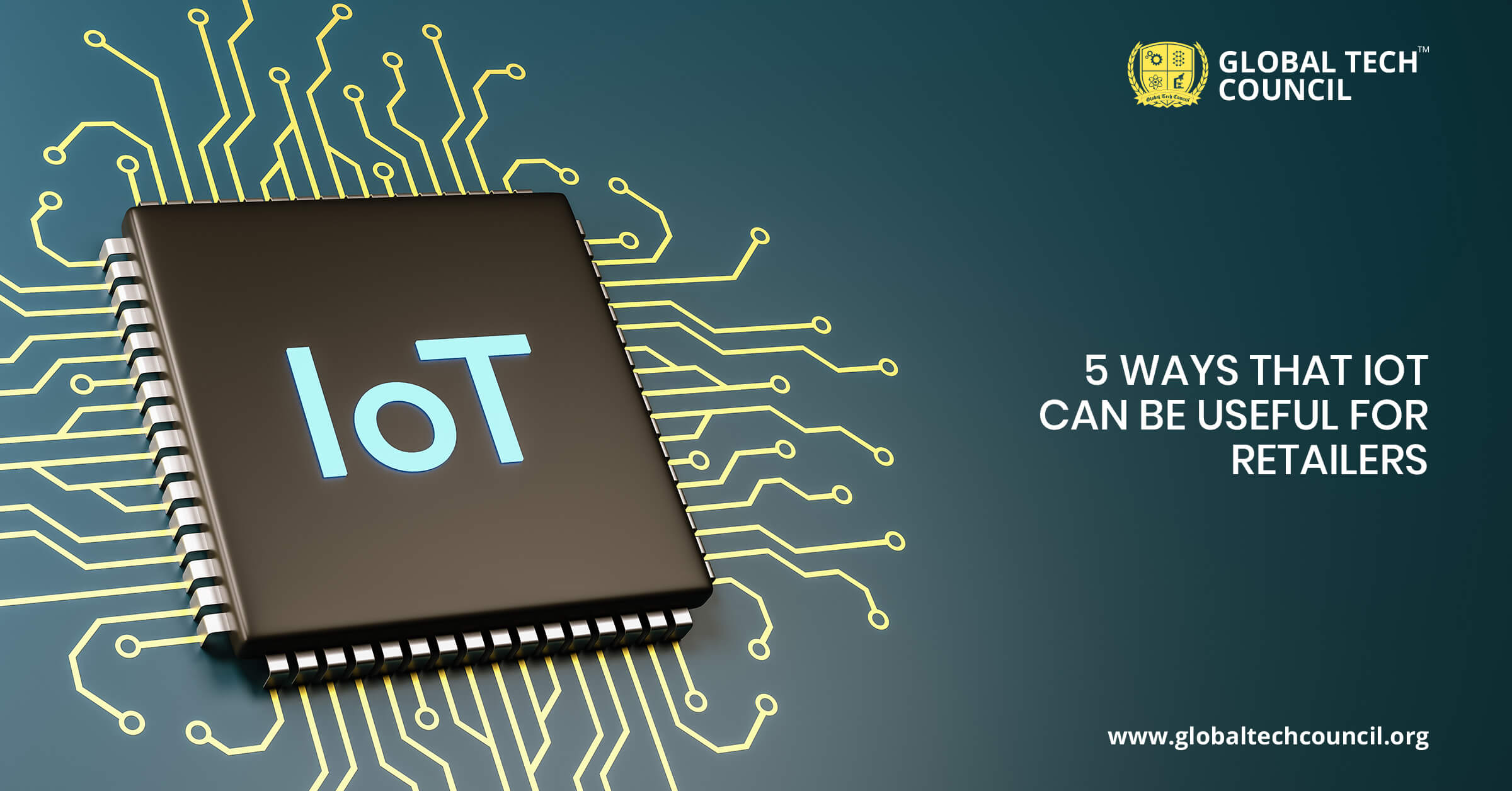
Internet of Things (IoT) refers to the objects that can gather and transfer information when connected to the internet without any human intervention. The introduction of IoT has brought a revolutionary change. IoT devices can help resolve minor yet annoying problems, from forgetting to switch off the lights while leaving home to watering the plants when on vacation.
IoT is not only about using these smart devices for personal assistance; it can also be tremendously helpful for all types of industries. It has made a significant impact on the retail sector. According to IoT developers, the cost of manufacturing these devices is now relatively lower than it used to be initially. So, the adoption of these devices is growing worldwide in many industries, including retail.
Ways IoT Can be Useful for Retailers:
With the rapid growth of online shopping, retailers are very keen to bring the frictionless customer experience of online shopping into the store wherever they can. This is where IoT comes in to provide access to rich data and high-performance analytics.
IoT applications are being beneficial for e-commerce stores and retail businesses. IoT provides an innovative approach to retailers, helping them digitize everything related to their presale, after-sale, and marketing segment. Here are some of the promising applications of IoT, which are helping retailers in the proper management of their store functionality.
Inventory & Supply Chain Management
The retailers are using smart shelves for proper inventory and supply chain management. They are now modernizing and upgrading their traditional way of working. The IoT-based smart shelves are helping in maintaining the stock inventory in an automated way. They help in removing manual errors by preventing overstocking and shortages.
The smart shelves are based on the Radio-Frequency Identification (RFID) technology that consists of three elements:
- An RFID tag attached to the product
- An RFID reader
- An Antenna
The RFID works like barcodes. Accordingly, a device can read the tags and store the data on it digitally. This leads to better inventory management and efficient use of the retailer’s working capital.
Fraud & Shrinkage Identification
Retail shrinkage is another big challenge retailers face, be it from shoplifters or stealing by store employees. The Internet of Things provides an additional layer of traceability & visibility of the inventory & delivery process. With the help of powerful cameras, the retailers can track the movements in their stores, and with RFID tags, they can follow the information about their stolen products. The products that are fitted with RFID tags prevent theft in retail stores. These tags are helpful for retailers in tracking and gaining more information about the thief.
Maintenance & Warranty
Maintenance & warranty is another aspect of the retail business, especially for the products that require post-sale services. Implementation of IoT devices helps retailers keep track of their products that need post-sale services or under warranty period.
The sensors embedded in the products help the retailers to track and identify the malfunction and warranty issues in their products. This system helps provide a better consumer experience. It also saves time as the technicians and the service staff already know when to visit by analyzing the real-time data. This data also helps in improvement and innovations in the product. This data helps effectively increase the product life as the retailers know how their consumers use the products.
Operational Cost Reductions
The biggest problem that many store managers face is continuously increasing operational efficiency while maintaining their store’s broad trajectory and performance goals.
Operational cost reduction is another practical benefit of implementing IoT in the retailing business. An effective way of running a business is always about cost reductions and maximizing profit margins. The implementation of IoT is helping in achieving this goal to a great extent.
Maintenance costs can be positively impacted when IoT devices are used with sensors to keep business equipment running at peak efficiency. The troubleshooting of working equipment identifies problems before moving customers and employees, preventing the inconvenience and costs of significant repairs.
This minimizes costly extended downtime for repairs—just one of the benefits the Internet of Things brings to your operations and maintenance workflow.
Retailers are using this technology to access their lost assets like shopping baskets, etc. Tracking these assets can help the store managers to reduce the cost of replacing them if they are lost. By placing sensors on these assets, the managers can receive updates and alerts if they are damaged. This also enhances the consumer experience as these sensors help the retailers to ensure that they always have enough shopping baskets available for their customers.
Better Customer Experience
Consumer shopping habits are changing day by day. As a result, it is becoming more challenging to fulfill customer requirements. But the implementation of IoT has helped retailers to overcome this challenge effectively.
Using IoT in retail improves the customer experience; instead, it also drives the customer experience by allowing businesses to gain a better insight into their customer preferences and create a more personalized and interactive ‘shopping’ experience.
According to IoT professionals and developers, it provides real-time access to help retailers implement strategic actions to provide better services to their potential customers. Implementation of IoT allows retailers to keep track of consumer demands. It helps in initiating personalized communications and optimizing personalized offers for different customers based on their shopping behaviors.
Conclusion
The IoT industry has made a tremendous change in the operational standards of professionals in different sectors. In the case of retail businesses, it has helped in cutting the cost and better time utilization. With time, IoT has helped improve operational services and business efficiencies, providing the best customer experience with much-working ease.
According to IoT developers, it opens multiple doors of opportunities for retailers. It still has much more potential that can be used to better the working standards in the retailing business.